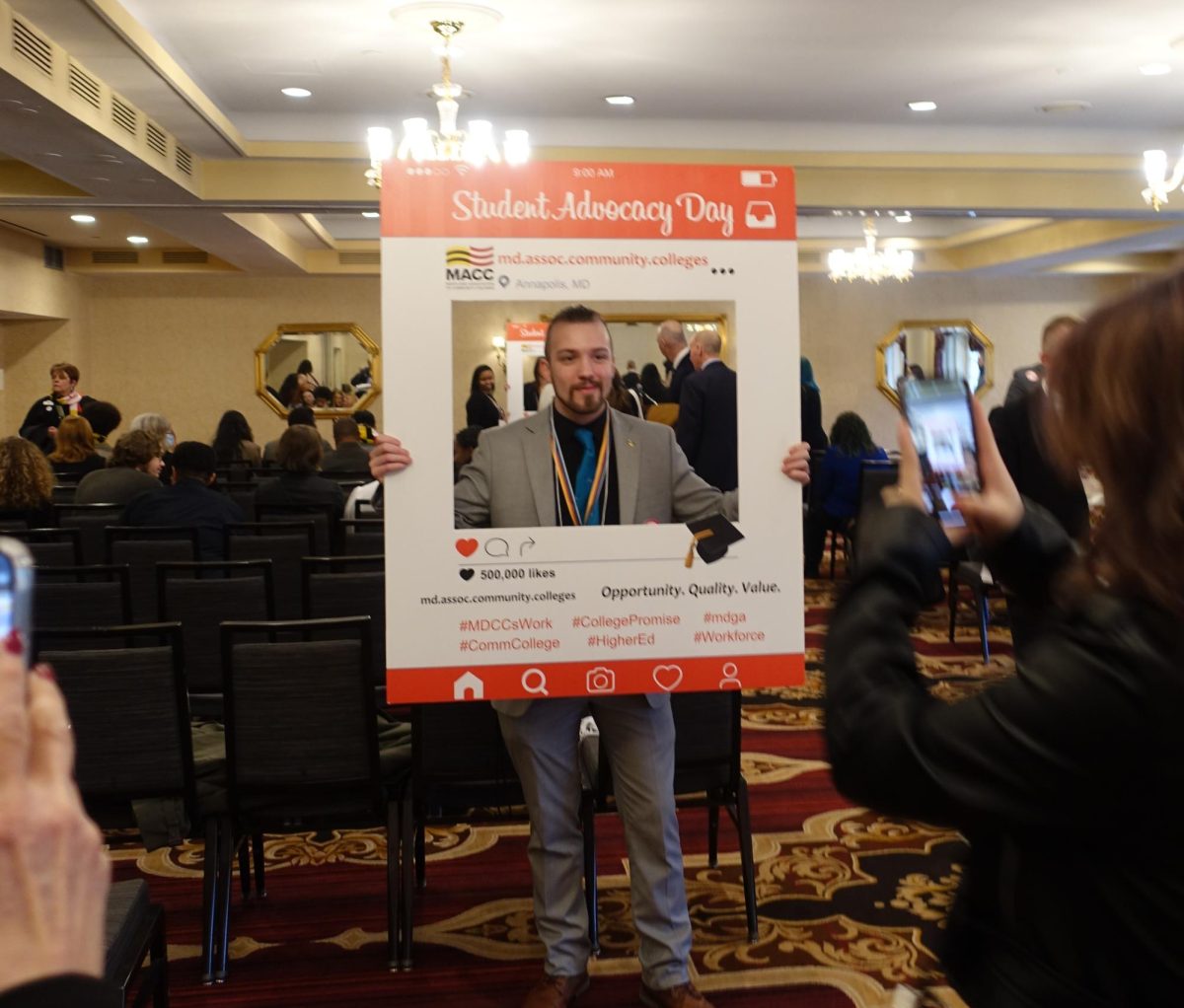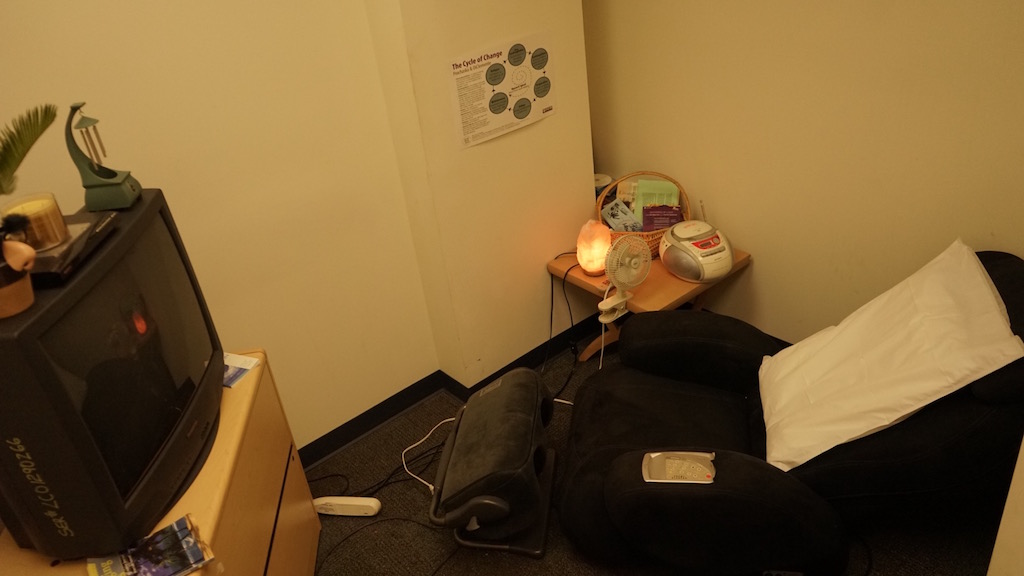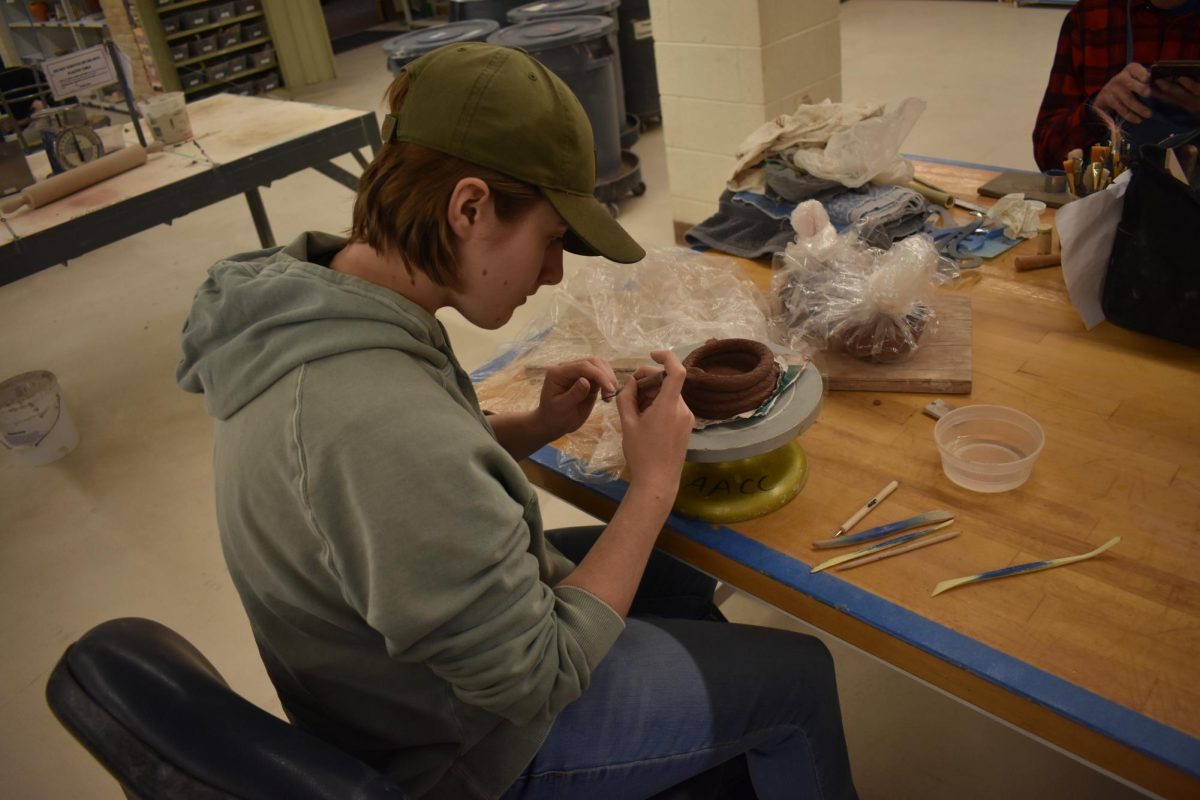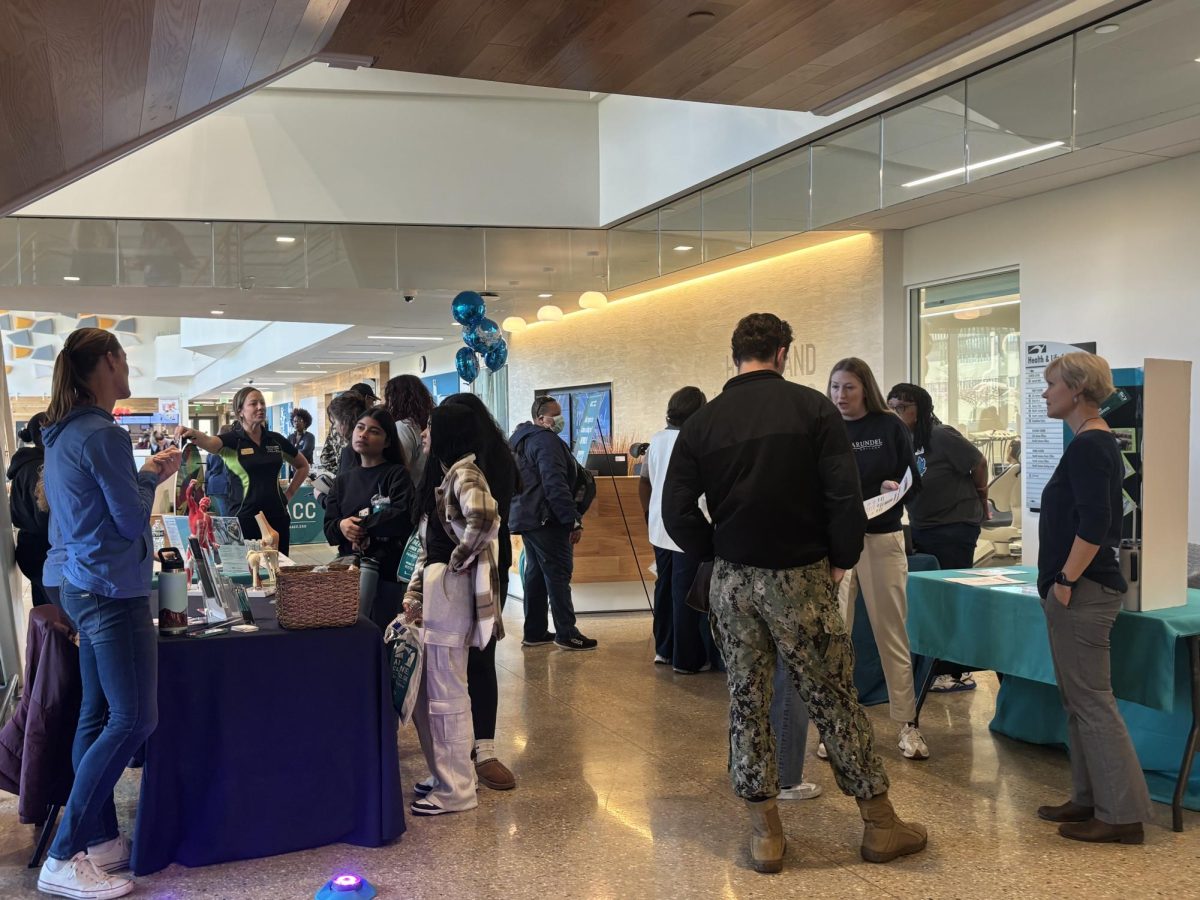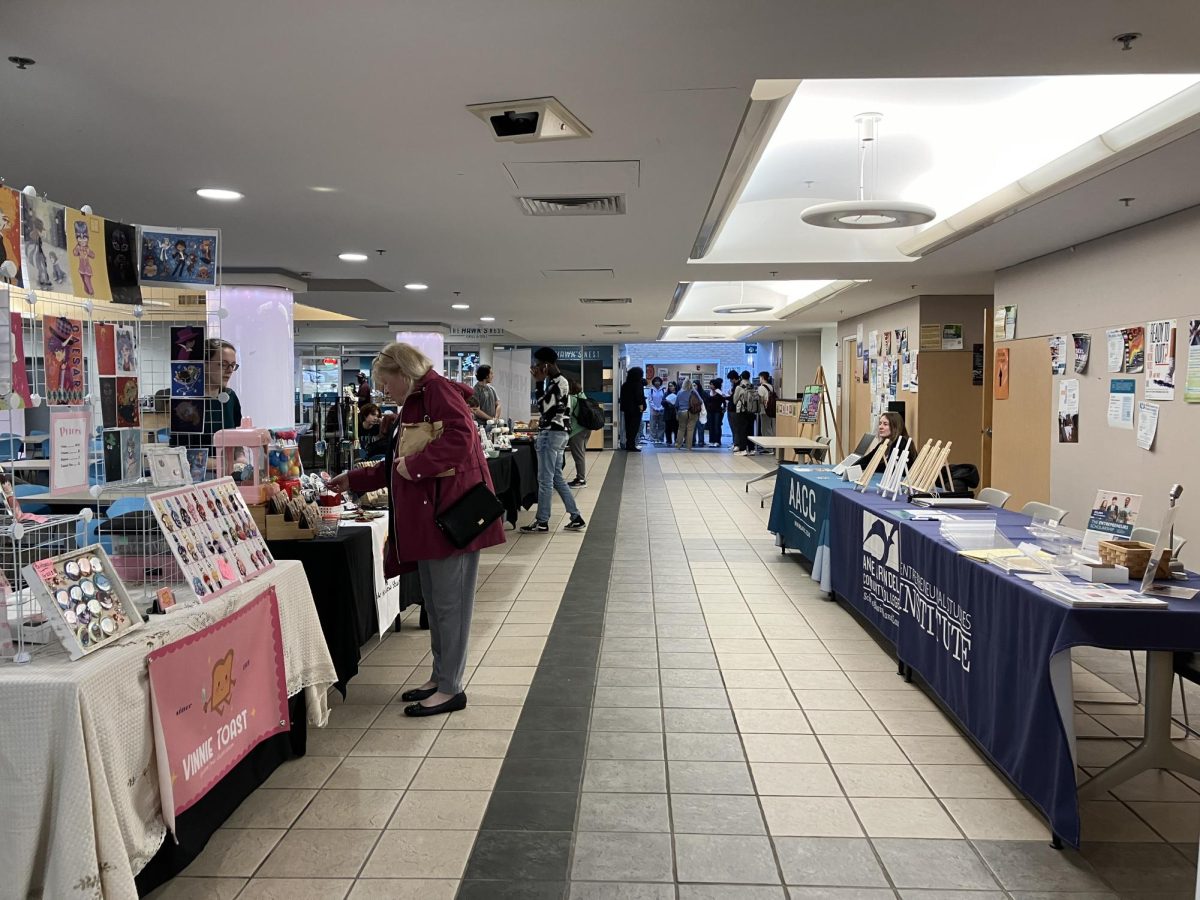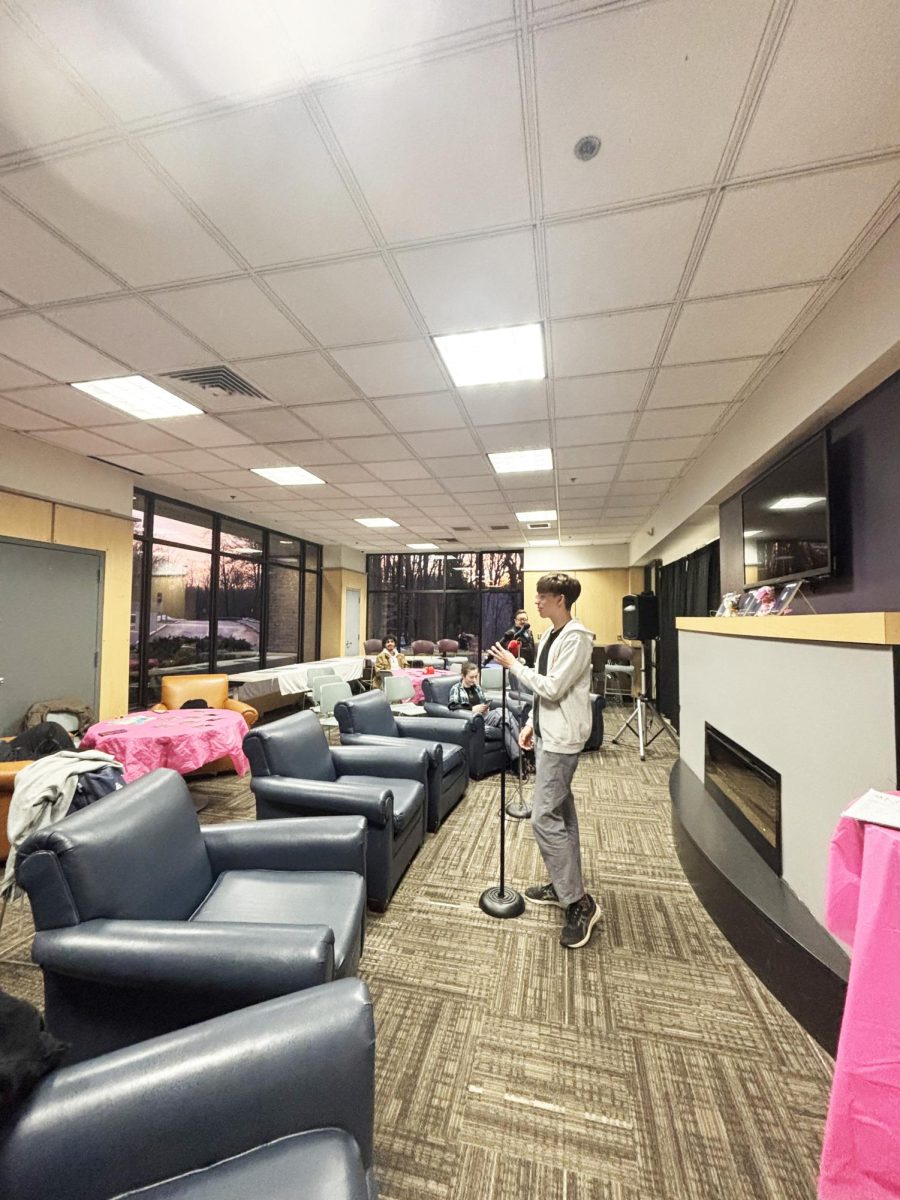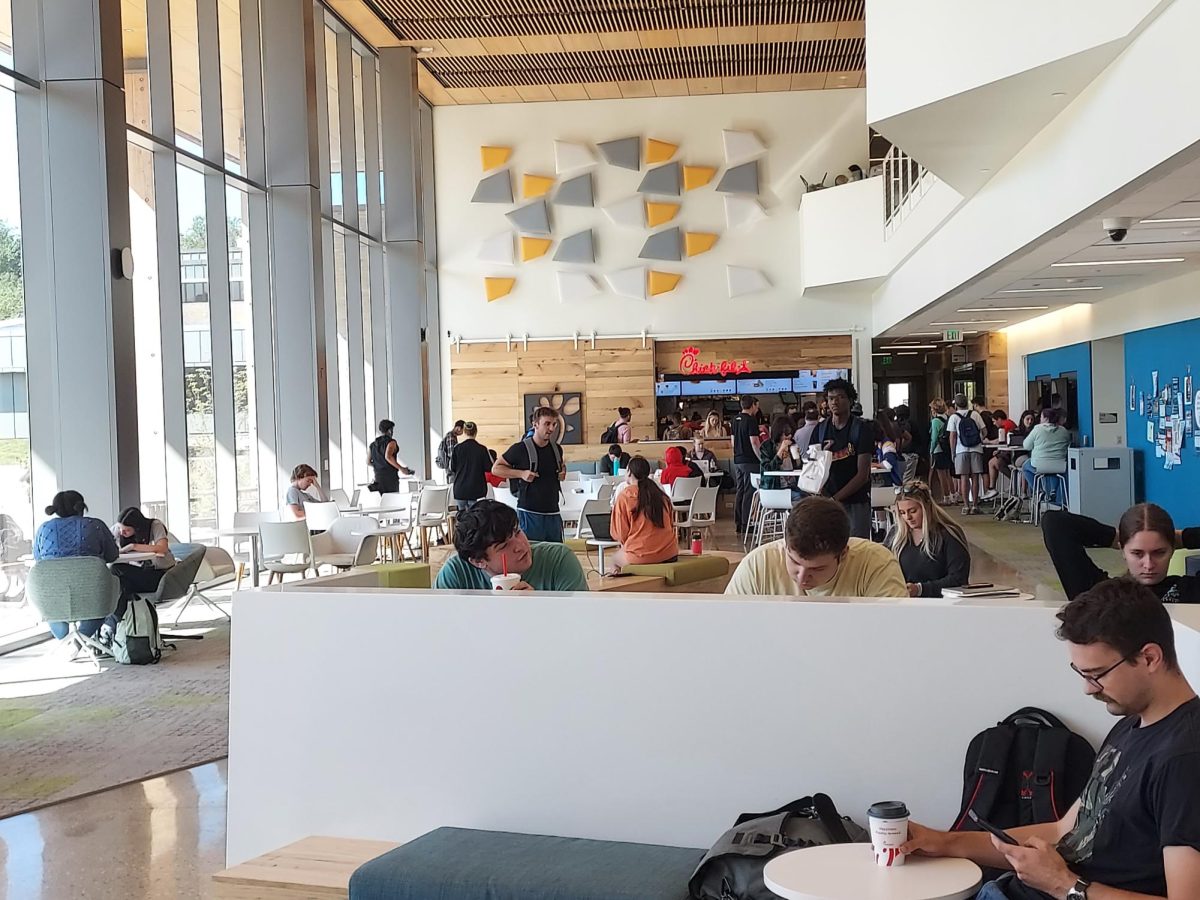Almost a dozen AACC students gathered in Annapolis on Tuesday to lobby their state senators and delegates to support community colleges.
Students from all of Maryland’s 16 community colleges gathered on Student Advocacy Day to oppose Gov. Wes Moore’s Budget Reconciliation and Financing Act, or BRFA, which would cut community college funding by $22 million, according to Maryland Association of Community Colleges Communications Director Brooke Henderson.
The state gives community colleges 29% of the funding four-year colleges get. BRFA would decrease that to 26.5%, Henderson said.
“Two-and-a-half percent may not sound a lot, but it’s a lot,” Henderson said. “Some colleges’ … budgets have been cut almost 20%.”
Henderson added, “It’s too early to say how this will be managed and we’re still hopeful that we can turn things around.”
Three state senators spoke to the assembled students on the importance of advocacy and opposing BRFA. The students then went to lobby the senators or delegates for their district.
Shaikh Ali, an AACC student who advocated at the event, said “promoting education is better for the survival of America in the next century. I love to do this advocacy because I think community colleges provide a foundation and a stepping stone. I am doing this advocacy for promotion of education.”
Latinx Club President Ashley Flores-Gonzales, who advocated at the event, said she is “really proud” of “all the AACC students” who lobbied their senators and delegates.
Flores-Gonzales, a second-year paralegal student, told her delegate her “personal story.”
“I feel like he was really connected with my story,” Flores-Gonzales said. “He [said] that he was going to [oppose BRFA], to be honest, and [that] it’s amazing how I’m the first gen in my family to graduate.”
SGA Vice President of Diversity, Equity and Inclusion Mya Williams said attending Student Advocacy Day was “an amazing opportunity.”
Brad Phillips, MACC’s executive director, wrote in an editorial for the news site Maryland Matters, that “BRFA would reverse the gains we have made, harm our students, and increase inequity in how the state funds higher education.”
The editorial continued: “So much is being asked of community colleges, more than ever before, yet funding for that work is completely severed from what we have been asked to accomplish.”



